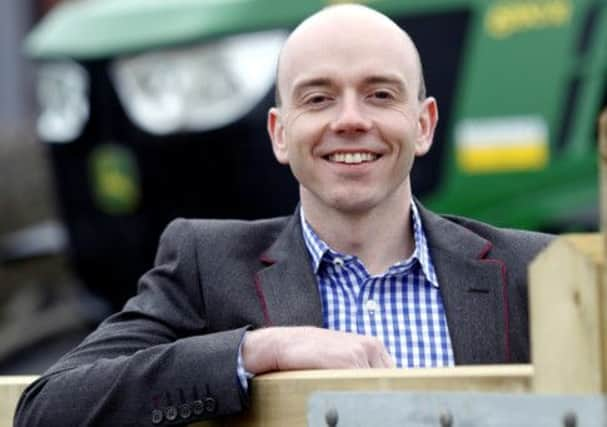New era at largest lowland farm firm


Farmcare, previously part of the Co-op Group and now owned by the Wellcome Trust, has acquired Causeway Farm in Swinefleet, East Yorkshire, to extend its 4,000-acre Goole estate at neighbouring Pasture Farm by 120 acres.
Richard Quinn, chief executive of Farmcare, told Country Week the Wellcome Trust will bring a new level of investment to all Farmcare farms, describing the shift in ownership as “a huge opportunity”.
Advertisement
Hide AdAdvertisement
Hide AdNationally, Farmcare’s estates include more than 300 farm buildings and dwellings, along with community facilities including village halls and playing fields.
Mr Quinn said: “We’re not just a farmer, we’re a rural business. We have a role to play in the communities where we farm. The estates need further investment.”
Farmcare, previously known as Co-operative Farms, produces top fruit, soft fruit, vegetables, cereals and biomass on more than 50,000 acres inEngland and Scotland. As Britain’s biggest lowland farmer, it owns seven farm estates and three packhouses and manages another eight farms.
In Yorkshire, as well as owning and managing Pasture Farm, it runs 2,500 acres at the Wykeham Estate near Scarborough, where it has worked with Viscount Downe’s Dawnay Estates since 1998, mainly growing wheat, oil seed rape and potatoes, and miscanthus energy crops for Drax Power Station.
Advertisement
Hide AdAdvertisement
Hide AdCauseway Farm is Farmcare’s first new acquisition under Wellcome Trust ownership. It came about when farmer Richard Watson retired and sold up in the autumn. It is used to grow cereals and oilseed.
Mr Quinn said Farmcare will invest in its estates under its new management to ensure it works closely with communities, shares farming practice and increases collaboration with others.
“Our commitment is to farm responsibly in a sustainable way as custodians of our land. We’re in it for the long term, so investing in our properties and operations are both a key priority. We’ll also ensure that our employees are trained to the highest standards, continuing their development and providing opportunities for people to access the industry as a career.”
After 118 years farming, the Co-op Group sold its agriculture business for £249m in August. Farmcare’s profits will now be fed back into the Wellcome Trust’s £18bn endowment fund, which ploughs around £700m a year into ‘biomedical research and public engagement’.
Advertisement
Hide AdAdvertisement
Hide AdThe Co-op began farming in Yorkshire in 1916, when the Co-operative Wholesale Society purchased land at Swinefleet. Today, Pasture Farm produces up to 7,000 tonnes of potatoes annually, which are delivered to Co-op Food stores across the UK. It also grows peas and combinable crops including wheat for milling into flour and for animal feed.
Farmcare will continue to supply potatoes, soft fruit and top fruit to the Co-op, Mr Quinn said, and will keep its staff and remain a single business.
“We’ll continue to work with the Co-op’s supply policies, but Farmcare is a standalone business. It will have its own identity and its own values and principles. They’re not dissimilar to some of the co-operative values and principles, but there will be different objectives, deliverables and expectations.”
Farmcare has hosted more than 100,000 Farm to Fork educational visits and supports the Habitat Heroes wildlife and conservation scheme, and it remains committed to wildlife and rural education, Mr Quinn said, adding: “It’s not often you get a piece of blank paper to think about what we can do to help us function and develop as a business. It’s an incredible time for the team and myself.”